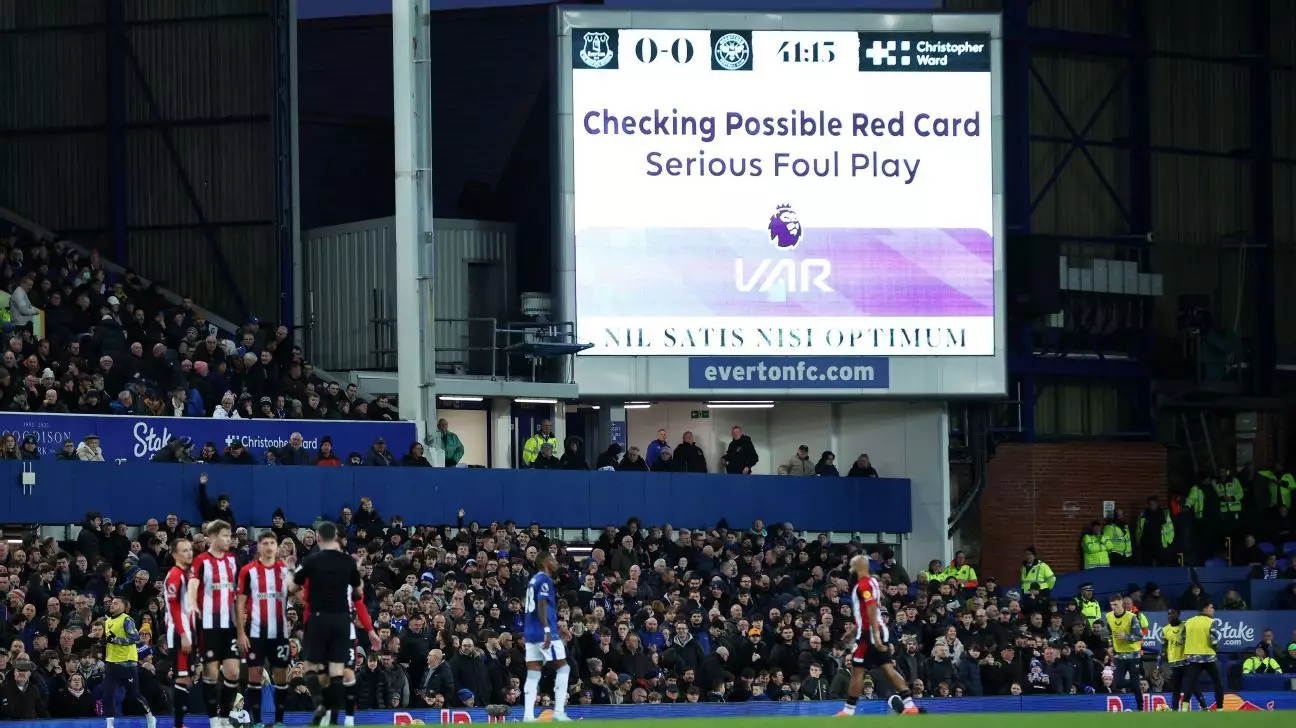In a tense encounter marked by high stakes, Brentford managed to secure an important victory, not just on the pitch but in the disciplinary realm as well. The team’s captain, Christian Nørgaard, faced a red card after an incident during Saturday’s scoreless draw against Everton. The controversy stemmed from a cumbersome challenge in which Nørgaard’s studs clouded into Everton’s goalkeeper, Jordan Pickford, as he attempted to reach for a ball in the congested area of the penalty box. Initially, the on-field referee, Chris Kavanagh, deemed the play to be fair, indicating a genuine lack of foul play in the situation.
This brings us to the pivotal role of the Video Assistant Referee (VAR), overseen by Matt Donohue, who had just entered the Premier League officiating ranks a month prior. Donohue’s assessment prompted Kavanagh to review the incident on the monitor, eventually leading to the contentious red card being issued shortly before halftime. This moment was a crucial turning point not only for the match but also raised questions about the effectiveness and reliability of VAR. The crux of the issue lies in the interpretation of “serious foul play,” a term that remains somewhat nebulous, often leading to ambiguity in officiating decisions.
In the aftermath, Brentford’s manager, Thomas Frank, couldn’t contain his frustration. His vehement disapproval of the decision underscored a broader sentiment among players and coaches alike regarding the vagaries of VAR intervention. Frank articulated a compelling argument, suggesting that Nørgaard’s intent was not malicious; rather, he was merely trying to score a goal. In his view, the decision appeared to lack common sense and was counter to the spirit of the game. He stressed that “if that is a red card, then the game has changed,” capturing an essential debate surrounding how VAR is applied and whether it overwhelms the referee’s judgment on the pitch.
Had Brentford’s appeal fallen short, the implications would have been significant. Nørgaard would have faced a suspension, potentially sidelining him for matches against high-profile teams like Leicester City, Aston Villa, and Newcastle. Such a loss could have critically hampered Brentford’s performance in the upcoming fixtures, given their need for all hands on deck to remain competitive in the league.
Brentford’s triumphant appeal encapsulates the ongoing debate about VAR’s impact on football. While it aims to provide clarity and fairness, its implementation can often lead to more confusion and frustration among players and fans. The reliance on a technological intervention such as VAR raises vital questions about the discretion and authority of match officials, not to mention the emotional aspects that are integral to the sport. As football continues to evolve, the discourse around VAR will remain critical as teams like Brentford fight not only for points but also to navigate the complexities introduced by the technology in the game.

